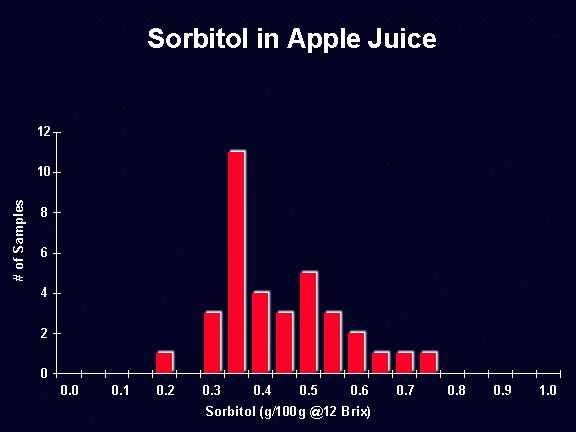A few months back, I completed the switch from beer to cider. After 30+ years as a beer drinker, I rarely touch the stuff anymore, and it doesn't taste that good to me, even my old favorites.
One downside to that is that my system doesn't seem to handle a full cider session very well. Lately, I always end up with very watery diarrhea after about two liters of cider. It doesn't seem to matter whether it's commercial or homemade, and there doesn't seem to be any style of juice, yeast, sweetener or additive that triggers it (as far as I'm aware). Everything I drink is pasteurized, though, for what it's worth.
It could be that my system just doesn't like large amounts of apple juice. I use two cups in my oatmeal a few times a week, and sometimes a glass on the side, and it doesn't affect me. But I've never just chugged two liters of juice, either.
Many years ago, when I was staying with some friends, they gave me fresh-pressed, unpasteurized apple juice from their orchard, and it gave me problems.
Has anybody else had similar experiences? Any remedies? It's a real shame that this happens to me, because I'm really enjoying making and drinking cider.
One downside to that is that my system doesn't seem to handle a full cider session very well. Lately, I always end up with very watery diarrhea after about two liters of cider. It doesn't seem to matter whether it's commercial or homemade, and there doesn't seem to be any style of juice, yeast, sweetener or additive that triggers it (as far as I'm aware). Everything I drink is pasteurized, though, for what it's worth.
It could be that my system just doesn't like large amounts of apple juice. I use two cups in my oatmeal a few times a week, and sometimes a glass on the side, and it doesn't affect me. But I've never just chugged two liters of juice, either.
Many years ago, when I was staying with some friends, they gave me fresh-pressed, unpasteurized apple juice from their orchard, and it gave me problems.
Has anybody else had similar experiences? Any remedies? It's a real shame that this happens to me, because I'm really enjoying making and drinking cider.




